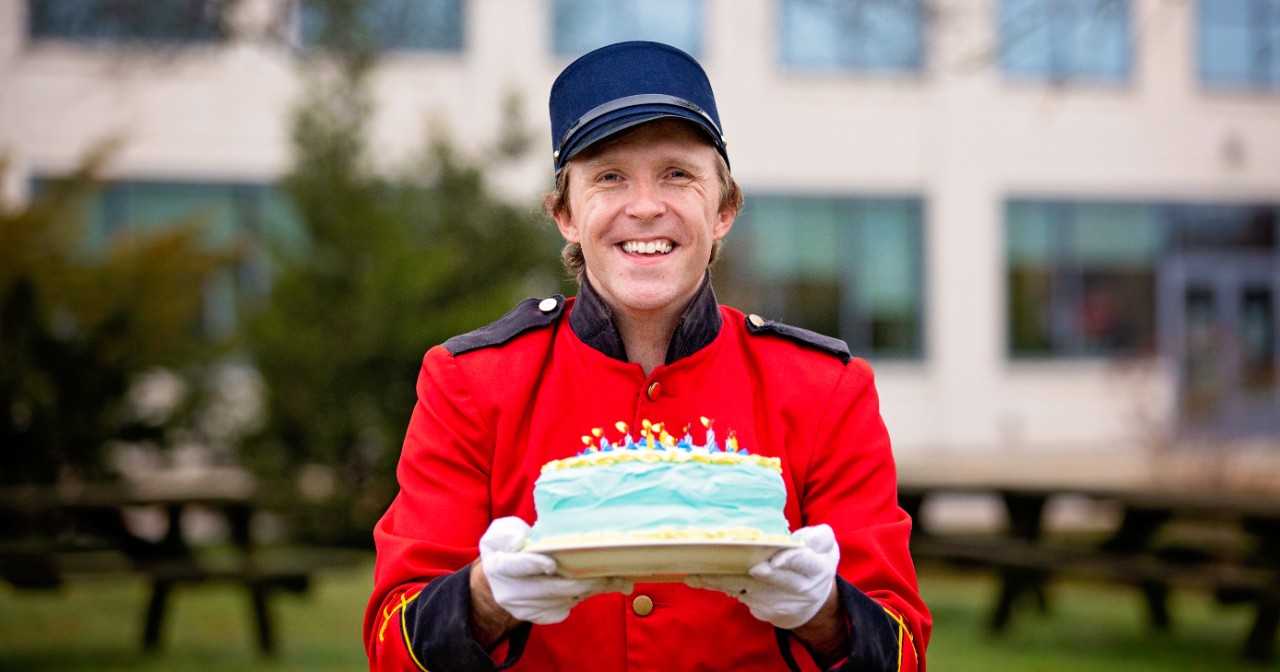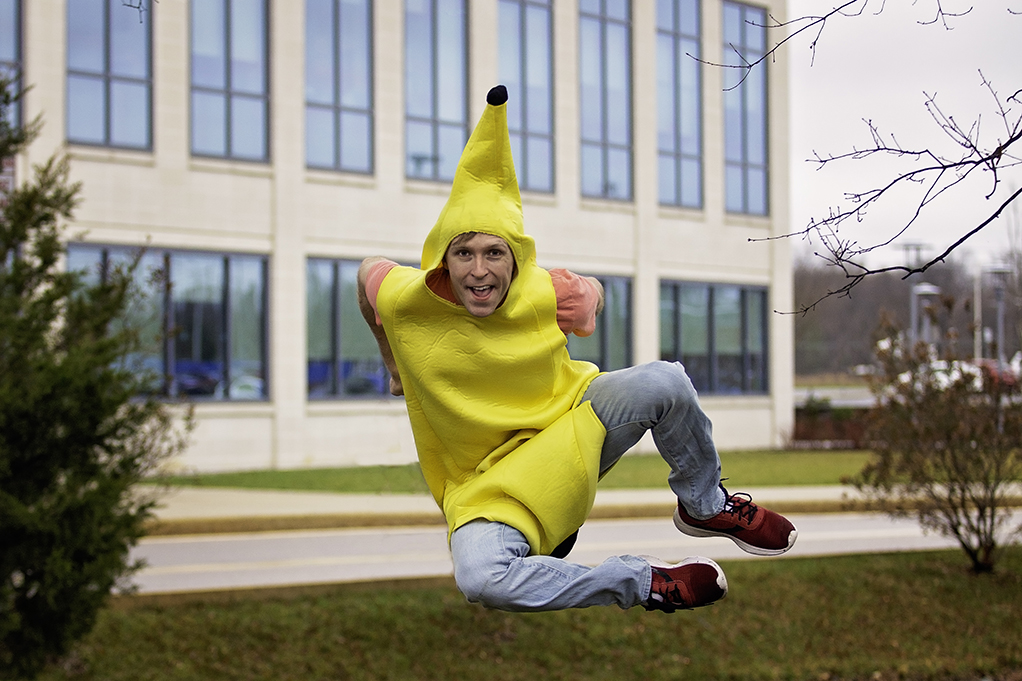
Category: Humans of Health Sciences

Taylor Darden, Humans of Health Sciences
October 13, 2021 Written by Nicolette Jimenez and Ashley Barnas | Photos by Ashley Barnas
Communication Sciences & Disorders
M.A. in Speech-Language Pathology
Class of 2022
"I'm the oldest member of my Speech-Language-Pathology master’s cohort, which I decided to just embrace. I graduated undergrad in 2010 with degrees in theater and English, so not anything healthcare related. I got my Master of Fine Arts in acting at Florida Atlantic University, which people are sometimes surprised to find is an actual degree.
Singing telegrams was one of my many side hustles. It's a great fun fact when you're meeting your class on your first day, right?
During my first semester at University of Delaware, I had yet to see many members of my cohort in person. It’s a very isolated existence, in a way. We're trying to endure the difficulties of grad school together and we've never seen each other's legs. It's a very weird thing. So we're trying to be supportive of each other online and one of the people in our cohort wishes another, ‘Happy birthday!’ And someone said, ‘Taylor, you should do a singing telegram for her!’ She may have been kidding, but it was a great idea. I asked, ‘What's your favorite singer?’ and she said Drake.
I don’t listen to Drake, but all right, I walked into this! I didn't know that he has a happy birthday song. It's literally, ‘it's your birthday’ with some profanity, so I learned the song and I sang it and recorded it. It was a big hit. I made a spreadsheet and said, ‘Everybody put your name, your birthday, and your favorite artist or your favorite genre and I will learn a song and sing it to you on your birthday.’ I'm proud to say I did everyone's. It was a really great outlet.

Fresh out of graduate school, I worked as a children's theater performer. After that, I decided to move to Philly because I had come through it on tour and thought it was a cool city - not too far from New York, with a good theatre scene if I was gonna do the starving actor thing.
I packed up a car with everything that would fit in it. No job, no apartment. I knew five people. I had $1,000 in the bank, the kind of thing that you can only do when you're 23 years old. And I was too dumb to know any better.
A position opened up for a really unique theater program for adults with Down syndrome, called Melmark PA Players. I just happened to have the right skill set and be in the right place at the right time at the age of 26 to take on this pretty big role. We did full-length Broadway musicals without the dialogue, but they could learn choreography and sing along to songs.
I was on the cusp of my 30s and thought maybe it's time to find something a little more stable. Around the same time, I started developing pain in my throat. I saw doctor after doctor. I did some alternative therapies. Nothing was working. We thought I had acid reflux and they kept giving me more and more medication, and all it did was make me sick. It turned out that I didn't have acid reflux at all. A doctor at Thomas Jefferson University figured out that I have a rare nerve disorder in my throat called glossopharyngeal neuralgia, which not even anyone in my cohort or graduate program knows about, except for one voice professor. It's super rare, but I had to work with voice therapists, which is a specialized kind of speech therapist. Looking back, the biggest thing I got out of that voice therapy experience was deciding to become a speech pathologist.
When I was about to turn 33, I started at the UD program to be a speech language pathologist. There were a lot of things about having a theater background that were transferable. Anyone who has been an actor or singer has studied voice, just not necessarily from the perspective of a clinician. We're treating someone who has a disorder either from extensive use of their voice for professional reasons - teacher, performer - or maybe they have Parkinson's disease, or other things like that. In a formal acting program, they also teach you a lot about speech and articulation: ‘Moses supposes his toes are roses’ kind of thing. I think those are probably the two biggest reasons you find that people from a musical theater, theater or opera background often work their way into speech pathology. I had the unique experience of having also worked in special education, so it was really dovetail for me because they talked about things like Augmentative and Alternative Communication, which we call AAC, that spreads across OT and special ed, too
I think my strongest interest lies in voice just because I feel the most confident about it, because I've studied it as a singer and actor, but I definitely have a real passion for helping people with disabilities, intellectual disabilities and people in the autism community.
I just want to help people. I want to help make their lives better in whatever way that means for them. I love that we can do it from birth to death. We work with newborns, with people in hospice, and literally everything in between. And it's so broad. You can go back and forth between these populations. You're not pigeon holed into one for your whole career. I love the flexibility. And I love the fact that I'm going to be a man in the field. There's not enough of us and I think that there should be more of an example that men can be in caring fields and nurturing fields and that it’s not just women's work."
